
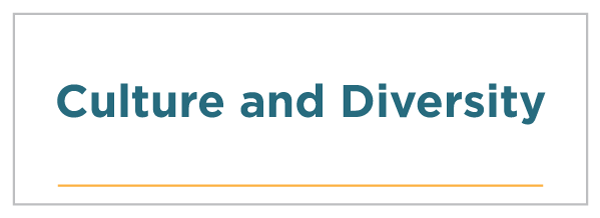 |
 |
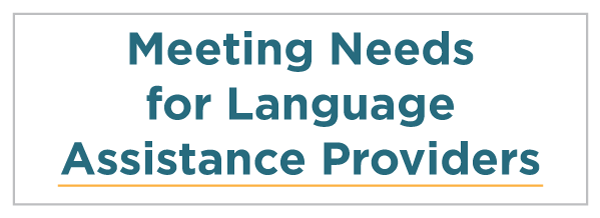 |
 |
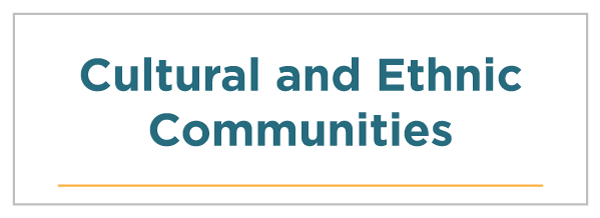 |
 |
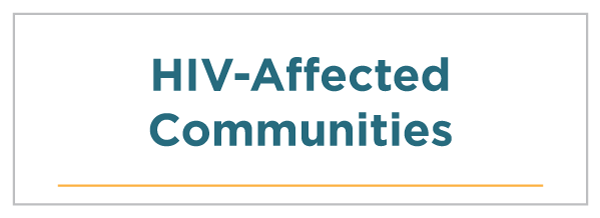 |
 |
 |
 |
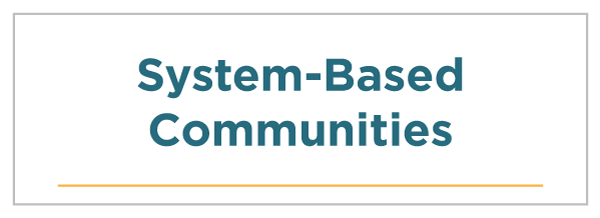 |
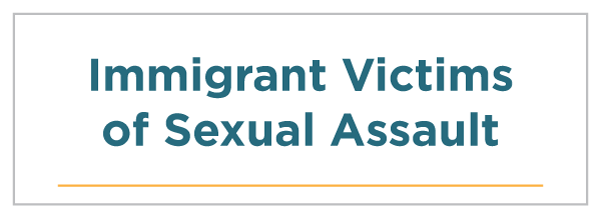 |
SARTs should be aware of faith-based resources and their potential implications for victims of sexual assault. Sexual violence affects victims not only physically, but also personally and spiritually. Sexual assault has the potential for tearing families and communities apart, and victims may find themselves “lost,” wondering why this happened. These questions may encourage someone to question, seek, or become further connected to their faith. For many, faith communities become an integral component to restoring and renewing victims, families, and communities.
When SARTs partner with local faith communities, SARTs are better prepared to meet the needs of all victims, especially victims who have a strong faith base or victims seeking healing through faith. Faith communities can provide a rich support system for families or entire communities. Faith communities may be the foundations of some communities and contribute to the strength, healing, and growth of each of its members. Faith leaders are trusted members of their shared community, and there are many community members of diverse cultures that regard and esteem them as leaders.
While this might look different in different faiths, faith leaders can often assist in holding offenders accountable and may be leaders in accountability for offenders during reintegration. Faith communities can set the standard in a community around accountability and safety for all community members. With this in mind, collaborating with local organizations and agencies can enhance supportive services available around sexual violence.
In many communities, sexual assault centers partner with faith-based institutions to provide adequate wrap-around services for victims of sexual assault. Faith-based institutions offer the support and resources of their community to improve the quality of members’ lives and support victims with emotional concerns or conflicts with their faith, as well as providing access to material resources and physical safe places.
The SART Toolkit does not explore specific faiths. It is strongly encouraged that SARTs develop relationships with faith communities, at a minimum to understand what services they might be able to offer to victims and to inform the faith communities about the SART’s services.
Faith communities can work to secure safety for the victim and can provide emotional and spiritual support, financial resources, short-term counseling, and referrals to community services. Most importantly, they can use the tools and resources of their tradition to seek healing and justice for the victim and accountability for the perpetrator. Often, this is no easy task and requires robust training, dedicated staff and volunteers, and ongoing community education and prevention efforts. But it is both possible and something victims deserve and should be able to expect from their faith communities.
The importance for faith leaders to be trained on how to respond to sexual assault cannot be overstated. Following a sexual assault, many victims will seek support from their existing networks, including members of their faith community. Like other organizations or individuals receiving a disclosure of sexual assault, religious communities and faith leaders can be sources of solace after trauma by providing compassionate, effective, and well-informed responses to the victim.
It is important for SARTs and faith leaders to understand that, for victims of sexual violence, religious traditions, teachings, and communities can either be a resource or a roadblock in addressing the victim’s experience of violence. [46] People of faith often turn to their tradition as a primary source of support and meaning during times of crisis, and pastoral care can vary greatly with regard to their leadership’s training and understanding of how to counsel a victim of sexual assault.
How can a victim’s faith be an asset? Religious traditions and spiritual practices are full of resources for healing, justice, and accountability. A victim’s faith can be a strong source of solace during a time of crisis. For example, a victim may find comfort in a teaching that emphasizes that God is always with those who suffer; or a victim may be able to use their faith to sustain their spirit during lengthy court proceedings or navigating social services.
Faith leaders have an important role to play in helping victims access the resources of their tradition. Many faith leaders learn about pastoral care during their training to become a faith leader. Likewise, SARTs can take seriously religious questions or concerns and, to the extent they are comfortable and able, engage these questions or concerns with compassion, patience, and empathy. It is crucial that faith leaders and SARTs know that it is never appropriate to use religion or religious teachings to condone, ignore, or hide violence. A victim should never be put in the position of having their faith used against them, especially during a time when they need it most.
However, both religious norms and inadequate training on pastoral care can become roadblocks to victims’ healing. For many, religion is intertwined with cultural norms. Theological issues such as the nature of suffering, forgiveness, authority, marriage and divorce, parenting, virginity, premarital sex, and so forth can color a victim’s view of the assault. Religious texts or teachings can be misused or misquoted in such a way that excuses or exacerbates violent behavior. The questions of “Why has God allowed this happen to me?” or believing, “I must have sinned for this to have happened to me” is not uncommon across many cultures and faiths.
Without proper training on the dynamics and realities of sexual assault, faith leaders can advertently or inadvertently contribute to the victim’s suffering by using harming language that blames the victim or using the victim’s faith to justify the violent behavior of the perpetrator.
Likewise, without proper training on the important role that faith can play for a victim’s culture and cultural norms, advocates on the SART may downplay or ignore a crucial piece of the victim’s support network and source of healing. There is also a great risk of further traumatizing victims by not allowing their needs to guide the process used to assist victims.
Responding in a culturally relevant, trauma-informed, victim-centered way requires training, opportunities to practice, and an ongoing commitment to continuous improvement. Initially, not all faith leaders or SART members will be able to handle disclosures like these perfectly, but in both cases, a clear understanding of sexual assault and an awareness of the importance of religious questions will go a long way in supporting these victims and connecting them with resources that support healing that works for that victim.
For further consideration of how faith can be used against a victim, see the Spiritual and Religious Abuse Wheel. [47]
For further consideration of how a religious community and faith leaders can respond to violence, see Religious Community Response Wheel [48] and What Religious Leaders Can Do to Respond to Sexual and Domestic Violence. [49]
Building strong partnerships between SARTs and faith communities is an essential component of providing holistic and well-rounded services to victims. Faith leaders are embedded in their communities and can provide innovative and relevant ideas of how to add a spiritual dimension to secular services. Additionally, faith leaders can help SART members learn more about the values and priorities of their faith tradition so that the SART member is well informed.
Likewise, SART members and other community advocates can provide victim-centered, trauma-informed training to faith leaders who provide pastoral care. SART members can also use their expertise to assist in program planning or in seeking funds for additional services.
Working with any faith institute requires analyzing and understanding your own biased beliefs. It is important to explore and understand differences that might exist between secular organizations and faith organizations regarding perpetrator accountability, healing, gender roles, and the topics of sex (e.g., sexuality and abstinence). The views can be different and methods of providing support can look different. Those differences can also lead to a rich collaboration that meets the various needs of the community.
Many cultures are built on a foundation of faith, and approaches to dealing with sexual violence may require an understanding of what that language is that they identify with (shame, guilt, punishment, knowing their place, purity, etc.).
Faith communities are very diverse. This includes diverse political and theological belief systems that may or may not conflict with your organizational philosophies. We may all have the same desire to eradicate sexual violence and all of its root causes, but how that is done can look different. Those biases are important to explore and discuss so the entirety of the communities can be best served.
When a SART reaches out to faith communities, it is helpful to find common ground with the faith community. For example, what do they know about the needs of sexual violence victims, and in what areas do they believe they could use some training? How do faith communities already address the needs of sexual assault victims in their congregations? Is it a priority in the community to provide the best services to victims? What do comprehensive and responsive resources and support look like from their worldview?
Finding common ground and inviting faith leaders to collaborate on services for survivors of sexual assault provides a mutual avenue of education and training.
SARTs can build bridges with communities of diverse faiths and cultures in many ways. An important practice is to become familiar with the diverse communities and introduce local agency services and community resources to your local religious institutions. Demonstrate an interest in forging a relationship by inviting them to speak at an in-service to share cultural norms, beliefs around violence, and gender roles so that staff can become familiar as well. This can also serve as another opportunity for everyone to challenge their own biases. This will not always result in strong bonds with other institutions, but it will afford the opportunity to become better versed in the needs of the community and familiar with the needs of diverse community members.
Invite and introduce faith-based providers to participate in local SARTs. Faith-based providers on SARTs can help the team develop and publish policies and protocols that include intervention and prevention initiatives specific to individuals’ spiritual needs. [50] Partnering with faith-based providers can be a critical community awareness mechanism as faith communities develop referral processes for victims reporting sexual assault and share education within their communities.
For further consideration of building strong partnerships with faith communities, see Creating Partnerships with Faith Communities to End Sexual Violence.
Educational initiatives for faith communities can include partnerships with institutions of higher education, hospitals, and law enforcement [51] or military chaplaincy programs. One example of a seminary’s training is the Dallas Theological Seminary’s sexual abuse awareness training.
For tips on engaging with faith leaders, read CAP TIP #11 To Improve Public Awareness Engaging Multi-Faith Communities and Sample Sermon (PDF, 7 pages).
The OVC Training and Technical Assistance Center offers the webinar recorded in November 2012, on Faith and Community Based Approaches to Victim Services.
SARTs should also be aware of or take part in interfaith training. Interfaith initiatives may fall under the umbrella of community ecumenical councils that are formed to develop greater religious unity or cooperation. For example, OVC funded a project in Denver to create a faith-based manual for pastors, priests, rabbis, lay leaders, religious counselors, and military, hospital, and prison chaplains as an elementary guide to understanding the issues confronting victims of crime.
In addition to creating Victims of Child Abuse, Domestic Violence, Elder Abuse, Rape, Robbery, Assault, and Violent Death: A Manual for Clergy and Congregations, the project —
The Faith Community Professional Education Initiative curriculums for clergy —
Beyond Halal and Haram: Muslims, Sex, and Relationships Safety Card
This card created by Futures Without Violence, HEART Women & Girls, and Advocates for Youth is designed for health care providers, community-based organizations, counseling centers, and religious organizations to start conversations about relationship safety.
Beyond Halal and Haram: Muslims, Sex, and Relationships Webinar
This webinar introduces a universal education intervention on relationships and its impact on health.
Building Victim Assistance Networks with Faith Communities, Lessons Learned by the Vermont Victim Services 200 Project
This project was coordinated through the Office for Victims of Crime (OVC). The website includes information on victims’ needs from a faith-based perspective, elements of collaboration, lessons learned, issues unique to victim assistance faith-based initiatives, and supplementary materials.
Chicago Alliance Against Sexual Exploitation
This organization provides many resources for different faiths to connect issues of sexual exploitation to religious passages and rituals.
A Commentary on Religion and Domestic Violence (PDF, 17 pages)
This resource by the FaithTrust Institute discusses the importance of faith and religion as a resource or a roadblock for survivors of violence. It explores the roles of faith leaders and secular advocates in responding to victims’ needs and addresses scriptural and theological issues such as suffering from the perspectives of various faith traditions.
Creating Partnerships with Faith Communities to End Sexual Violence (PDF, 68 pages)
This resource developed by the Washington Coalition of Sexual Assault Programs in 2002 explores the ways in which service providers can work with faith communities. It includes practical educational and organizational resources for providers who are interested in working within their own faith communities or who want to build secular or faith-based partnerships. An analysis is included of three successful workshops to address victims and offenders.
Domestic Violence and Religion: Special Collection on VAWnet
This is an online compilation of resources related to issues of religion, domestic violence, and sexual assault, including faith-based and multicultural resources; race, ethnicity, and culture as critical factors in accessing domestic violence resources; role of faith leaders and laity in domestic violence prevention and intervention; and creating a safe space for faith communities to address domestic violence.
Faith Communities and Sexual Assault — Sexual Assault Coalition Resource Sharing Project Newsletter (Issue 14) (PDF, 23 pages)
The Spring 2005 issue of Reshape, the newsletter of Resource Sharing Project, focuses on ideas for collaboration between faith communities and sexual assault and domestic violence programs that can be used to build SART agencies’ capacity to collaborate with faith communities. It is available to state sexual assault and dual coalitions through the Resource Sharing Project.
Faith and Intimate Partner Violence: Handbook for Advocates (PDF, 24 pages)
This handbook by the FaithTrust Institute and Florida Coalition Against Domestic Violence offers tools for advocates to understand faith as a fundamental cultural competence when working with victims of violence. It also discusses the faith of a survivor as a possible resource or roadblock in their safety and healing.
National Immigrant Women’s Advocacy Project
This organization is a national leader on the rights and services available to immigrant victims of domestic and other violence, including language access; multilingual materials; dynamics, culture, and safety; and research.
Survivors Network of Those Abused by Priests
This network allows survivors of clergy abuse to share their stories and educate the community.
Task Force for Faith-Based and Community Initiatives
This task force coordinates efforts to eliminate regulatory, contracting, and other programmatic obstacles to the participation of faith-based and other community organizations in providing social services.
Walking Together: Working with Women from Diverse Spiritual Traditions (Handbook)
This anthology by the FaithTrust Institute for domestic violence shelters and community-based programs is designed to educate advocates about working with women from a wide variety of religious and spiritual traditions, offer concrete strategies for making domestic violence programs sensitive and welcoming to women from diverse faith backgrounds, and provide suggestions for effective collaboration between domestic violence programs and religious communities.
Walking Together includes articles about American Indian and Alaskan Native (AI/AN) spirituality, Buddhism, Catholicism (in Anglo and Latino communities), Hinduism, Islam, Judaism, and Protestantism (mainline, Evangelical, and Black Church).
CONNECT Faith
This site offers customized training programs for clergy, seminarians, members of faith communities and lay leaders; guidance on changing the beliefs and practices that lead to abuse; assistance in developing religious and culturally relevant programs and policies; referrals for faith-based counseling for victims, survivors and perpetrators; and training for secular advocates and agencies in effective ways to address a client’s religious and spiritual concerns.
The Center for Justice and Peacebuilding helped launch the restorative justice movement worldwide and provides a number of resources.
FaithTrust Institute offers a wide range of services and resources, including training, consultation, and educational materials, to provide faith communities and advocates with the tools and knowledge they need to address religious and cultural issues related to abuse.
HEART is a Muslim organization that specifically focuses on promoting sexual health and preventing sexual violence in Muslim communities. Materials include short videos, sexual health curriculum, and training materials.
Jewish Women International works to empower women and girls.
KARAMAH’s primary mission is to educate both Muslims and non-Muslims about the just, gender equitable foundation of Islam. In particular, their mission is to provide the community with Islamic jurisprudence that emphasizes gender equity and encourages intellectual growth, conflict resolution, and leadership development. They couple this education with advocacy and legal representation that promote their core value: that dignity is God-given.
OVC’s Training and Technical Assistance Center
The Office for Victims of Crime (OVC) provides technical assistance to SARTs that want to develop or expand faith-based initiatives.
This project provides education, consultation, educational and training materials, as well as technical assistance related to domestic violence in Muslim communities. Sexual violence is addressed within the context of domestic violence in anti-domestic violence training for clergy and in awareness-raising programming in Muslim communities.
The Peaceful Families Project (PFP) website offers educational resources for advocates and those affected by domestic violence and sexual assault. Presentations and workshops can be tailored to focus on sexual assault. PFP also works to build bridges between Muslim faith leaders and community service providers for more effective prevention and response.
This multi-faith organization advocates for sexual health, education, and justice.
Safe Havens Interfaith Partnership Against Domestic Violence
Safe Havens believes the faith community has a unique role to play in responding to and preventing domestic violence and elder abuse. Every faith community and faith leader can help victims and survivors use their faith as a resource, connect with community services, and overcome the many barriers to safety. While Safe Havens’ primary focus is domestic violence, they are happy to help SARTs develop relationships that will better serve victims of sexual violence.
Transforming Communities: Technical Assistance, Training, and Resource Center
This resource center advances new practices, skills, movement building, and policies to prevent violence against women and related forms of abuse, including domestic violence, sexual assault, teen dating violence, and gender-based bullying. The organization has a well-developed faith collaborative.
The U.S. Department of Justice Center for Faith-Based and Neighborhood Partnerships
The center’s goal is to strengthen and expand partnerships with faith and community-based organizations throughout the country, as they provide critical support to people in need. The office serves as a bridge between local and national nonprofit organizations and the DOJ. They seek to connect faith and community-based organizations with relevant information and to provide them with up-to-date information about a wide variety of partnership opportunities.
Washington Coalition of Sexual Assault Programs
This organization maintains regularly updated information and a list of national technical assistance providers on their website, including those for faith communities.
| Back | Index | Next |
